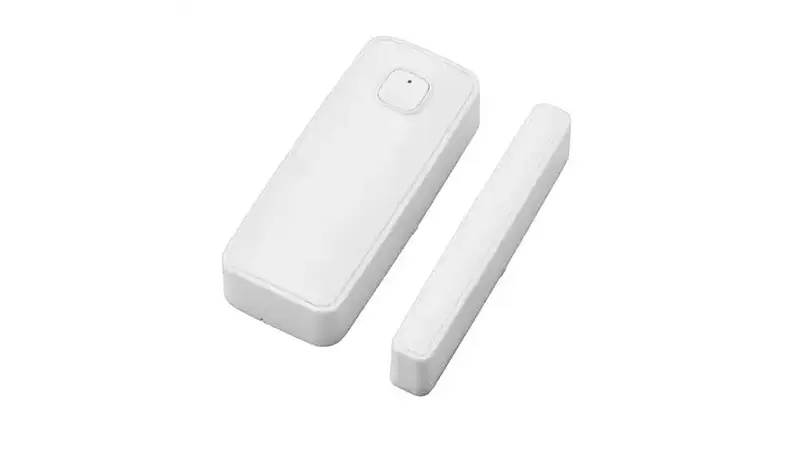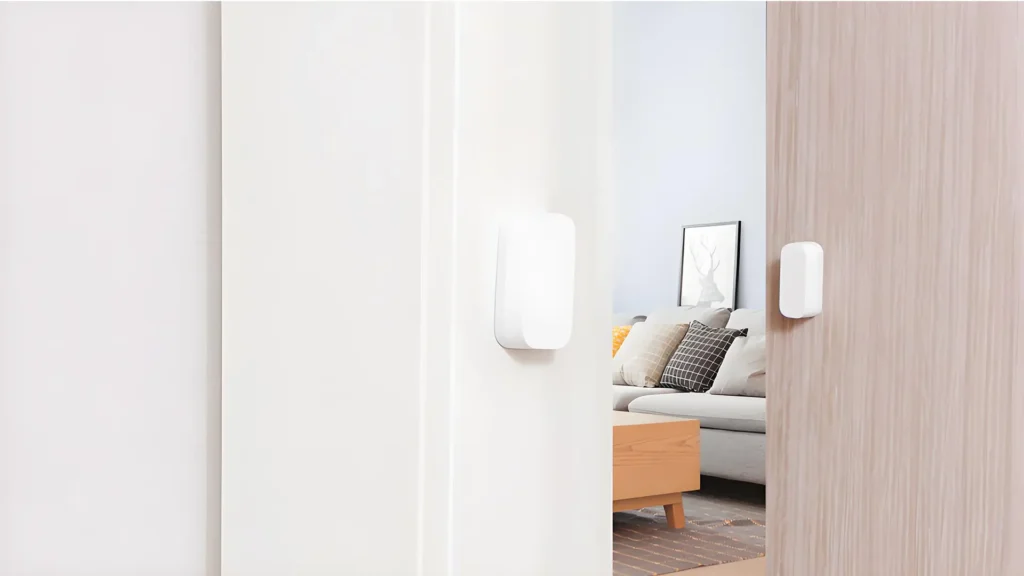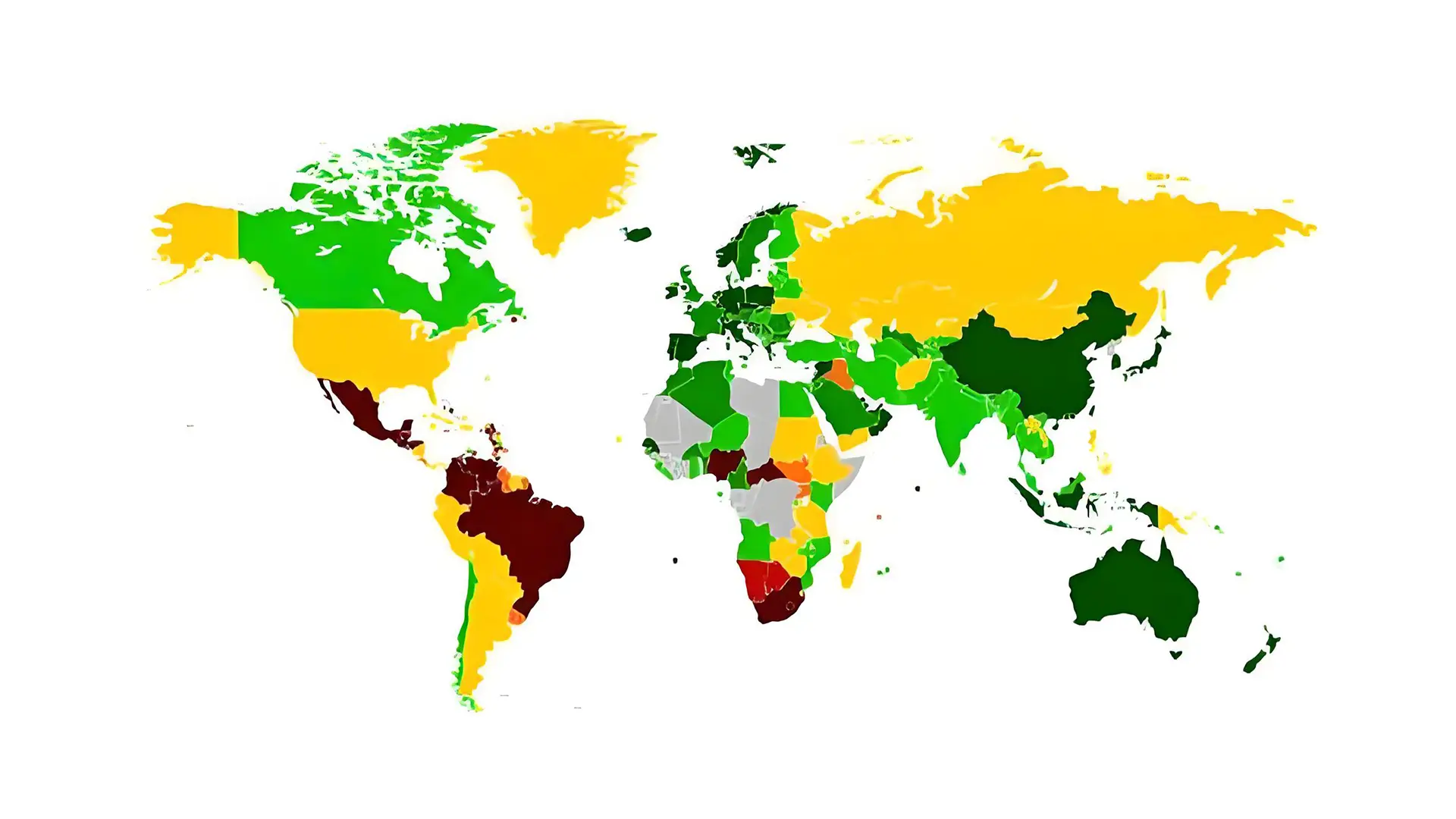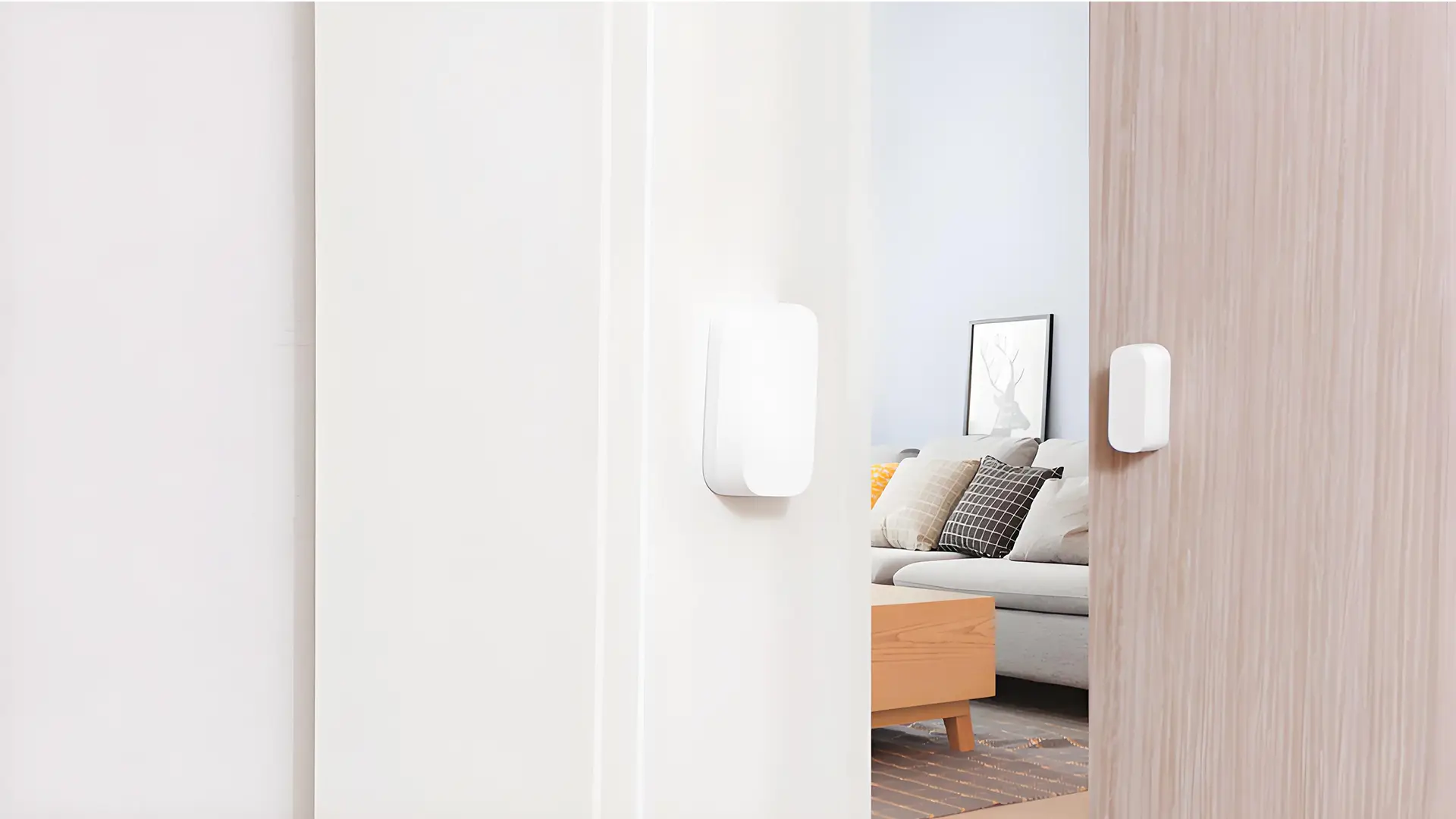In today’s society, many places are becoming increasingly chaotic, which makes it important to protect family members. Smart door sensors are very effective in improving house safety. When the house or window is opened, we will receive a mobile reminder message as soon as possible. This will allow us to have real-time access to our home. If there are elderly or children at home, it is particularly recommended to use smart door sensors because they can also monitor whether the elderly or children are going out, which can prevent them from getting lost.
In this article, we will explore which smart door sensors are the best on the market in 2024. Let’s analyze the functions, advantages, and disadvantages of these door sensors together. After reading this article, you will easily choose your favorite door sensor.
What is a smart door sensor and how does it work?
Smart door sensor is a safety device for house entry and exit alarm. Through the smart door sensor, users can know the opening and closing status of their own doors. It consists of sensors and magnets. When a door or window is opened, the magnet will separate from the sensor, and the sensor will transmit information to the communication module and send the information to the gateway. The gateway will then transmit the information to the mobile phone or cause relevant smart home devices to issue a warning.
how does a smart door sensor work
The core component of the smart door sensor is the reed switch. A reed switch is a device made of soft magnetic material, with two contacts sealed inside a glass tube and filled with inert gas to prevent contact oxidation. When the door or window is closed, the magnet approaches the reed switch, the two contacts are attracted, and the circuit is connected; When the door or window is opened, the magnet moves away from the reed switch, and the two contacts return to their original position under the action of elastic force, causing the circuit to disconnect. Sensors detect this magnetic change to determine the opening and closing status of doors or windows, and transmit this information to smart home systems or users.
Main features of smart door sensors
Different smart door sensors have different characteristics. When purchasing, it is important to first understand the features of smart door sensors, which is beneficial for buying a door sensor that is suitable for oneself. Let’s discuss the main features of door sensors separately below.
Connectivity
Door sensors are an important smart home device, and different door sensors support different communication protocols:
Wi-Fi: Wi-Fi smart door sensors can directly connect to your phone or other smart home devices without the need for an additional hub. This feature makes WiFi door sensors very suitable for small homes. WiFi door sensors can be directly connected to other smart home devices without the Internet, which can save money on hubs. However, WiFi door sensors consume more power compared to other alternatives, which is an important factor restricting the development of WiFi door sensors.
ZigBee or Z-Wave: The connection between Zigbee door sensors and other electrical devices requires a hub for relay. Zigbee door sensors can transmit information to farther places and can be used in large houses. ZigBee door sensors have low power consumption and can work continuously for longer periods of time. The disadvantage of ZigBee door sensors is that they require a hub to transmit signals to other smart devices and mobile phones during use.
Bluetooth: The power consumption of Bluetooth smart door sensors is the lowest and most energy-efficient. The transmission distance of Bluetooth is very close. If users need Bluetooth door sensors to transmit information to distant places, they need to add a Bluetooth gateway near the Bluetooth door sensor. Due to the need for an additional Bluetooth gateway, this will increase the cost of Bluetooth door sensors.
Alarm and Notification
Alarm and notification are the most important functions of smart door sensors. Smart door sensors are suitable for transmitting information to users in a timely manner when the door is opened. Some smart door sensors are connected to the smart alarm at home, and when the door is illegally opened, they will emit a buzzing sound in a timely manner. Some smart door sensors come with their own alarm.
In addition, some smart door sensors can be integrated with devices such as Amazon Alexa or Google Home, ensuring that smart door sensors can perform better.
Battery Life
Battery life is an important indicator of smart door sensors. If the battery life is long, users can reduce the frequency of battery replacement and maintenance. If the battery life is short, the frequency of battery replacement will increase. Under normal circumstances, the battery life of smart door sensors is usually between 6 months and 2 years. WiFi door sensors have higher power consumption and shorter battery life, while Zigbee and Bluetooth sensors have lower power consumption and longer battery life.
Nowadays, many smart door sensors have low battery warning, and users should replace the battery in a timely manner when receiving the low battery warning.
Smart Home Integration
Smart door sensors need to be matched with other smart home devices, especially the smart home hubs of large companies such as Amazon Alexa, Google Home, and Apple HomeKit, in order to perform better. Matching these hubs can make the door sensor better connected to the Internet.
Price and Value
Price is an important indicator that affects the sales of smart door sensors, and every user has a price expectation when purchasing a suitable door sensor. It is best to choose a smart door sensor that meets your needs at a relatively low price when purchasing. If there is no value management, we will purchase more expensive door sensors under the influence of the merchant.

Top 5 Smart Door Sensors in 2024
Aqara Door and Window Sensor
Aqara door and window sensors take pride in their affordability and extraordinary smart home integration. It uses Zigbee connectivity technology to ensure fast and reliable connection to the hub, and can seamlessly collaborate with popular smart home systems such as Apple HomeKit, Amazon Alexa, and Google Home. The sensor has low power consumption, a battery life of 2 years, and can work continuously for a long time. The compact and understated design of Aqara door and window sensors makes them easy to place on doors and windows without attracting attention.
For users seeking high quality and good connectivity, Aqara door sensors are a great choice. Aqara door sensors are reliable, easy to install, and can be well integrated into smart home systems currently in use at home. The Aqara door sensor needs to be paired with a hub or gateway to achieve its full functionality. When purchasing, it is important to confirm whether your home has it.
Best for: Homeowners seeking high-quality door sensors and having a smart home hub at home.
Ring Alarm Contact Sensor (second Gen)
The Ring Alarm Contact Sensor (2nd generation) is an important supplement to the Ring alarm safety system. This sensor can be integrated with other Ring protection devices to form a safer indoor safety protection solution. It sends real-time metrics through the Ring application to ensure that you receive immediate notifications of any door or window activity. Ring Alarm Contact Sensor is easy to install and has a long battery life.
The Ring Alarm Contact Sensor performs well in the Ring ecosystem, but its alarm function requires a Ring alarm to be implemented, and the sensor has poor compatibility with other smart home systems. For users who have Ring products at home, this is a very good sensor that is easy to operate, safe and reliable, and has a low price.
Best for: The home already has the Ring integrated device Ring smart home system.
Wyze Contact Sensor v2
The price of Wyze Contact Sensor v2 is relatively low and cost-effective, making it the best choice for many users. The Wyze Contact Sensor v2 is equipped with WiFi connectivity, which enables full functionality without the need for a hub. It works perfectly with the Wyze home monitoring system, providing real-time alerts when doors and windows are opened at home. The design of Wyze Contact Sensor v2 is very user-friendly, providing a peel and paste design that is very easy to install.
The Wyze Contact Sensor v2 is affordable, but its battery life is shorter than other door sensors, about 12 months. For smaller households or apartments, this sensor is very suitable.
Best for: Users with small budgets and no hubs.
Smartdoorsensors Door & Window Sensor
Smartdoorsensors Door&Window Sensor is specially designed for Apple HomeKit users, with a relatively high price, and is an important member of Apple’s smart home system. Smartdoorsensors Door&Window Sensor connection speed block, stable data transmission, it does not transmit data to the background, it stores data locally, attaches great importance to privacy protection, which is very suitable for customers who value user privacy. Smartdoorsensors Door&Window Sensor has a simple and stylish appearance, which is very suitable for family matching.
The battery life of Smartdoorsensors Door&Window Sensor is up to 1 year, which is relatively short. Smartdoorsensors Door&Window Senso is only compatible with the Apple HomeKit system and is not compatible with other home platforms, which greatly limits its range of use.
Best for: Apple HomeKit users who value privacy, reliability, and seamless smart home integration.
Samsung SmartThings Multipurpose Sensor
Samsung SmartThings Multipurpose Sensor integrates many sensors, which can not only monitor events of doors and windows, but also detect motion, vibration, and temperature. This multi-sensor function can cover all aspects of building safety protection, especially for SmartThings users who want to develop smart home automation. Samsung SmartThings Multipurpose Sensor can collaborate with other smart home devices through Zigbee and SmartThings Hub connection.
The Samsung SmartThings Multipurpose Sensor has a compact structure and can be installed in many places such as doors, windows, or inside a house. But SmartThings Hub is needed to run well. For those who are already using the SmartThings ecosystem, the Samsung SmartThings Multipurpose Sensor is a great multifunctional sensor.
Best For: SmartThings users are looking for multifunctional sensors with advanced customization.
How to Choose the Right Smart Door Sensor for Your Home
When choosing high-quality smart door sensors based on your preferences, please consider the following factors:
- Housesize: If the house area is relatively large, when choosing smart door sensors, you can choose to use Zigbee or Z-Wave connections. These sensors have hubs that can achieve long-distance data transmission and are more suitable for large houses. Smaller houses or apartments can use WiFi door sensors without hubs.
- Smart Home Ecosystem: The selected smart door sensor should be compatible with other smart home systems to better achieve the functionality of the door sensor. Common systems include Alexa, Google Home, or Apple HomeKit.
- Budget:Purchase a sensor that suits oneself. Some door sensors have multiple functions and internal sensors, but the price of these door sensors is often higher. Choose a sensor that meets one’s basic needs instead of a multifunctional door sensor.
- Battery life: Under the same conditions, the longer the battery life of the door sensor, the better. When purchasing, try to choose batteries with longer lifespan.
- Installation:Choose a sensor that is easy to install, preferably a smooth deployment door sensor with adhesive backing.
The benefits of using smart door sensors in 2024
- Strengthen family safety
The smart door sensor will remind you of sudden interest, prevent destructive behavior, and give you peace of mind.
The smart door sensor will promptly alert users of illegal intrusion, so that users can take timely measures to reduce losses.
- Remote monitoring
Through mobile phones, we can monitor the situation of doors and windows at home anytime and anywhere. Whether working at the office or vacationing on the beach, users can receive information from door sensors.
- Integration with other devices
The door sensor can be integrated with other devices through the smart home system, which will enhance the protection function of the protective system.
- Family member safety
It can monitor whether the elderly or children in the family have gone out and returned home in a timely manner to prevent them from getting lost.
- Low cost
The cost of smart door sensors is low, the installation is simple, and the usage and maintenance costs are very low.
Conclusion
Smart door sensors are very suitable smart devices for households nowadays, greatly improving the security of the home. Entering 2024, the smart door sensor market continues to grow, and smart door sensors can be used not only in homes, but also in warehouses and offices. The market for smart door sensors in the future will continue to grow.
FAQs of Smart Door Sensor
- How long does the battery of a smart door sensor last?
The lifespan of most smart door sensor batteries is between 1 and 3 years, and the specific lifespan depends on the model purchased by the user.
- Do smart door sensors work with all smart home systems?
Not all door sensors are compatible with all smart home systems, so it is important to understand the specific adaptation system of the purchased smart door sensor when making a purchase.
- How secure are smart door sensors from hacking?
Most smart door sensor systems encrypt data and prohibit unauthorized access, ensuring high network security.
- Can I install a smart door sensor myself?
Yes, most door sensors are installed using tape or screws.







